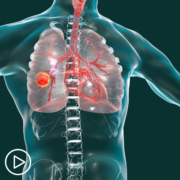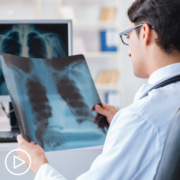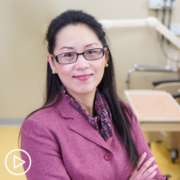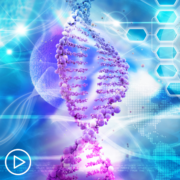Non-Small Cell Lung Cancer Treatment Options | Personalizing Therapy from Patient Empowerment Network on Vimeo.
How does the presence of biomarkers impact lung cancer treatment options? Lung cancer specialist Dr. Isabel Preeshagul discusses how test results may influence treatment options and aid in personalizing lung cancer therapy.
Dr. Isabel Preeshagul is a thoracic medical oncologist at Memorial Sloan Kettering Cancer Center. Learn more about Dr. Preeshagul.
See More From INSIST! Lung Cancer
Related Resources:
Transcript:
Katherine Banwell:
How do biomarkers in lung cancer affect treatment options for lung cancer patients?
Dr. Isabel Preeshagul:
So, it used to only be in stage IV, but now we are learning that biomarker testing is really important from the get-go because we have induction or neoadjuvant protocols that are looking at giving targeted therapy before patients go to surgery.
We know that there’s FDA approval for patients to get targeted therapy after surgery, and there’s a survival advantage there. So, make sure that you have next-generation sequencing testing regardless of your stage.
Katherine Banwell:
Okay. That’s good advice. So, we’ve heard how testing and a patient’s individual disease can lead to more targeted options. And you just mentioned targeted therapies. How do they work?
Dr. Isabel Preeshagul:
So, there are many different targeted therapies that we have. Some of given as an infusion. For HER2, for example, we have TDXD, and we have T-DM1. TDXD is the only drug that’s FDA-approved in this setting. There are clinical trials looking at T-DM1. For EGFR Exon 20, we have another infusional drug called amivantamab-vmjw (Rybrevant). For EGFR Exon 19 and Exon 21, we have a pill called osimertinib (Tagrisso). For KRAS, there’s a pill. For most of the driver alterations, it’s a pill, but some of them it does require infusional therapy. But these are therapies that are targeted at the cells that harbor that mutation.
Katherine Banwell:
Let’s turn to immunotherapy. What is it, and how does it work?
Dr. Isabel Preeshagul:
So, immunotherapy is basically teaching your body to recognize cancer as foreign. So, when you have – I always kind of use this hand model. So, basically, a normal cell has, let’s say, three prongs. And then sometimes what happens is cancer will grow a marker called PD-L1 that makes it hide from the immune system. So, the body thinks that this is a normal cell. So, what immunotherapy does is it comes up and it sort of puts a cap on that PD-L1 so that the cell looks foreign again and the body can attack that cell and get rid of it. So, it’s almost like ramping up your immune system to recognize that marker and get rid of that cell.
Katherine Banwell:
What is the regimen for immunotherapy, and how often is treatment administered?
Dr. Isabel Preeshagul:
So, immunotherapy is approved in the neoadjuvant setting, which means before chemotherapy. It’s approved after chemotherapy, and it’s approved in the stage IV setting. There are many different regimens and many different dosings and many different drugs. But it’s typically given in your veins, either once every three weeks or once every four weeks for a certain amount of time. If it’s given in a curative setting and it’s given indefinitely or until there’s disease progression or intolerance in the stage IV setting.
Katherine Banwell:
Okay. Let’s touch upon the side effects of these types of treatment. You’ve mentioned that there are so many, but what are some of the major side effects, and how are they managed?
Dr. Isabel Preeshagul:
Side effects of immunotherapy can include pneumonitis, which is inflammation of the lungs, any kind of endocrinopathy like issues with your thyroid, issues with your pancreas like diabetes.
It can cause colitis, which is diarrhea, inflammation of the colon, hepatitis, inflammation of the liver. It can cause cerebritis, inflammation of the brain. It can cause arthritis or arthralgias, inflammation of the bones. And it can also cause rash and fatigue.
Typically, if it’s the thyroid, it’s managed with thyroid replacement hormone or a drug that would calm down the thyroid if it’s overactive. Pneumonitis is steroids. Hepatitis is sometimes treated with steroids. Colitis, steroids typically. Steroids usually come somewhere in there, usually not with the endocrinopathies, but the other itis’s, it’s typically – we start with steroids and go up from there. And the goal is to really recognize these toxicities before they become a problem and just at the glimmer of them just starting.
Katherine Banwell:
So, would you consider these treatments to be personalized medicine then?
Dr. Isabel Preeshagul:
So, it’s personalized in the sense that if someone has a high PD-L1 expression, there may be some data to demonstrate that they may benefit from immunotherapy or have a response. If someone can’t tolerate chemotherapy or is not interested in chemotherapy or has other reasons that may preclude them from getting it, it might be reasonable. So, in that sense, it is considered personalized.
Katherine Banwell:
How would you define personalized medicine?
Dr. Isabel Preeshagul:
To me, personalized medicine takes into account the biologic makeup of a patient’s disease like if they have a mutation and what their PD-L1 status is, what the histologic makeup of it. What’s their stage? And then, on the other hand, what’s important to that patient? If they’re a tailor, you want to make sure you’re not giving them a medication that’s going to cause neuropathy, so they can’t use their hands.
If they enjoy playing the harp or the piano, same thing. If their goal is to continue to run marathons, you may want to avoid something that’s going to cause inflammation of the lungs and risk them for pneumonitis. Tailoring to make sure that the treatment is part of their life but does not become their life.



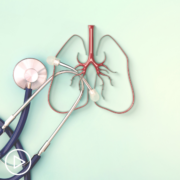
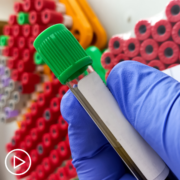

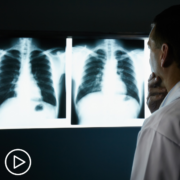
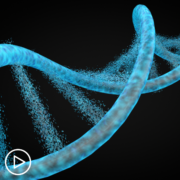
![SCLC [ACT]IVATED](https://powerfulpatients.org/wp-content/uploads/Screenshot-2024-01-09-at-1.22.18-PM-1030x584.png)

![SCLC [ACT]IVATED](https://powerfulpatients.org/wp-content/uploads/Screenshot-2024-01-09-at-1.25.27-PM.png)
